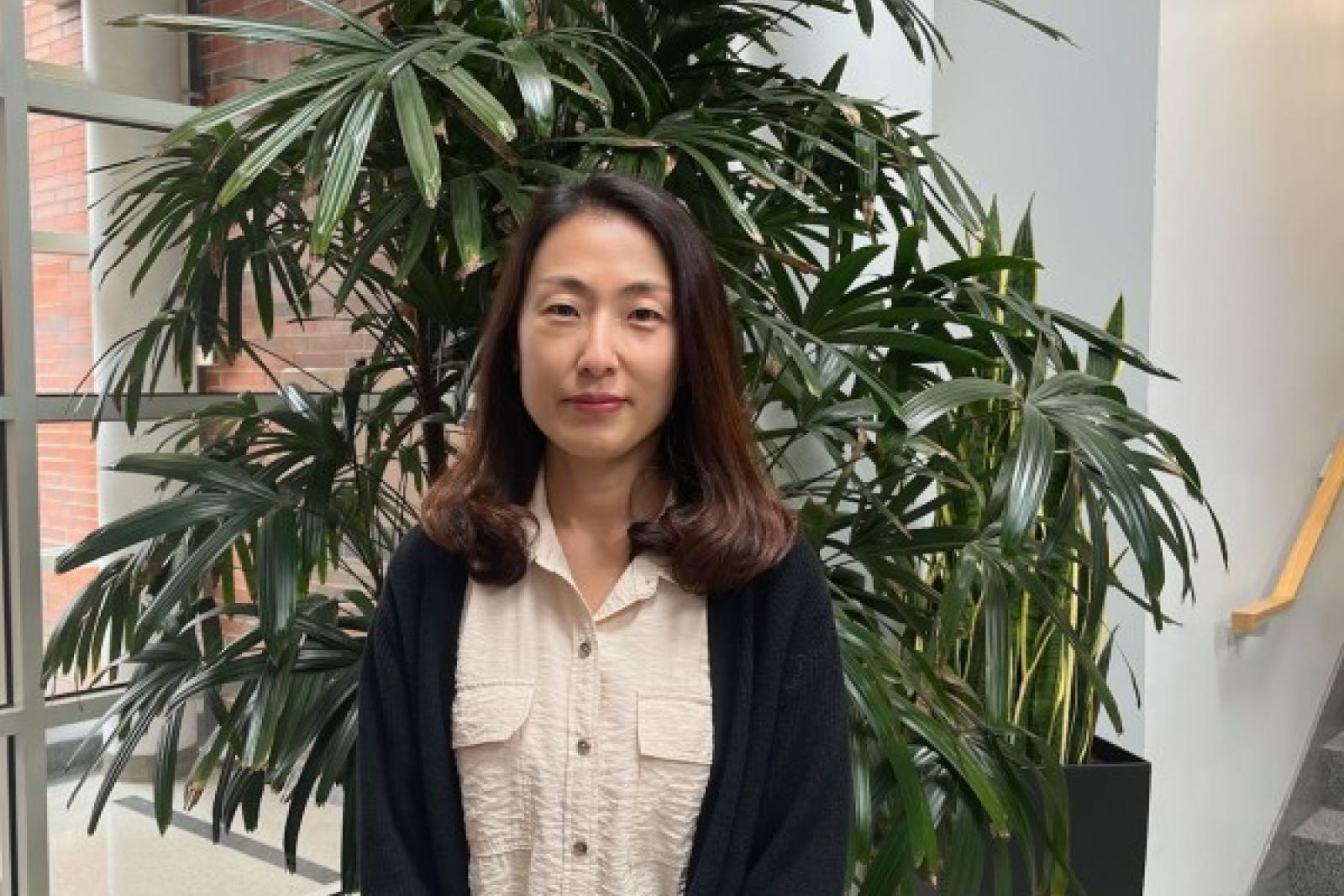Ji Young Kim recognized in Kidney International

Ji Young Kim, PhD, research scientist at The Ohio State University College of Pharmacy, was recently recognized in Kidney International, a high-impact nephrology journal, for her research titled, “Zinc finger protein 24-dependent transcription factor SOX9 up-regulation protects tubular epithelial cells during acute kidney injury.”
Dr. Kim first joined the Ohio State College of Pharmacy as a postdoctoral scholar in 2016 and was recently promoted as a research scientist at the college. She has been a productive researcher mostly focused on studying kidney diseases; she published eight lead-author publications while also being selected to multiple presentations at the American Society of Nephrology’s annual meeting.
“Ji Young is an extraordinary scientist,” said Navjot Pabla, PhD, associate professor of pharmaceutics and pharmacology at the Ohio State College of Pharmacy. “She is an exceptionally talented researcher and her work has provided critical insights into processes involved in kidney injury and repair.”
Study background
Kidneys maintain body fluids, electrolytes and acid-base homeostasis while secreting hormones and bioactive molecules and excreting metabolic waste products. Acute kidney injury (AKI) is a common clinical condition associated with abrupt loss of normal function and excretory functions of the kidneys.
A protein called SOX9 is known to be important for embryonic development and in adult tissues with high turnover, such as the intestines and hair follicles. In adult tissues, increased SOX9 levels ensure proper tissue architecture during normal cell turnover and post-injury repair.
Dr. Kim’s research aimed to uncover how SOX9 levels increase in tubular epithelial cells during acute kidney injury (AKI). For her research, she used an in vitro screening method followed by preclinical animal trials to validate her findings. Her research found that a zinc factor protein named “ZFP24” was the transcriptional regulator that increases SOX9 during AKI.
Study findings
This study is important because it lays the groundwork needed to develop therapeutic strategies that increase SOX9, reduce injury and accelerate the repair process. AKI in high-income countries claims around 300,000 lives a year and results in 170,000 end-stage kidney disease diagnosis while contributing to 300,000 patients reaching advanced chronic kidney disease (CKD).
“This is the first study to identify ZFP24 as the upstream regulator of SOX9 in AKI using complementary genetic approaches in mice,” Dr. Kim said. “This study suggests that ZFP24-SOX9 axis might play a critical role in kidney tissue remodeling in response to stress and injury. This study provides new insights into the regulatory mechanism of SOX9 in AKI and ZFP24-SOX9 axis could be promising therapeutic strategy to prevent and or treat AKI.”